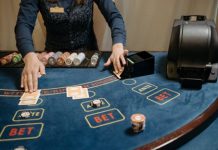
Poker players are masters at reading situations and opponents in order to gain the upper hand. The same skills that make great poker players can significantly help in negotiations. Reading this article will help you understand some tricks that poker players usually use during their games.
Assess the Situation Before Making a Move
Experienced poker players don’t just throw chips around randomly. They carefully study the game conditions before determining their next play. Is it a tight table where players only bet with very strong hands? Is the player across from them aggressive or passive? Gathering this information sets the stage for their strategy.
When entering a negotiation, take time upfront to understand the landscape. Know your bargaining power relative to the other parties. Gauge priorities and interests on both sides of the table. Just like poker, failing to educate yourself before negotiations start makes it hard to play your cards well.
Master the Art of Bluffing at the Right Times
While bluffing incessantly is ill-advised, doing it sparingly at opportune moments builds negotiating leverage. The Rocket Play Casino poker greats can read when opponents are likely to fold and precisely when to bet strongly with marginal hands. They bluff just enough to work, but not so frequently that they get called too often.
Similarly, know when to strategically exaggerate your position during negotiations to extract concessions. If done judiciously, asserting that you’ll walk away from the deal, for example, carries more weight. Don’t overplay your bluffs, but recognize there are scenarios where posturing builds bargaining power.
Remain Calm Under Pressure
Getting flustered at the poker table often induces poor decision making that costs money. Emotions running high cloud judgment and makes people veer from solid strategy. That’s why the icons of the game all stay cool as cucumbers in even the most stressful situations.
Negotiations invoke anxieties for many of the same reasons. Concessions you make when frustrated may not align with your best interests long term. Take a page from top poker competitors and regulate your emotions when feeling pulled in different directions. Keep centered on sound negotiating tactics rather than reacting impulsively.
Pick Your Battles Carefully
All great poker players choose selectively when to get involved in hands to maximize upside. Even pocket aces occasionally need to be folded if the situation warrants. Not every potential fight is worth waging, even with a strong position.
Being similarly judicious in deciding when to dig into negotiations serves you well over time. Conceding small points often greases the wheels to gain agreement on bigger items down the road. Don’t get bogged down arguing on every tangential topic – focus energy on the key issues.
Make Strategic Betting and Raising Decisions
Poker is often a game of betting patterns and sizing. How much to raise and re-raise with different hands in unique scenarios crystallizes through experience. The same hand warrants distinct betting decisions depending on the state of the game and opponents.
In negotiations, strategic concession patterns affect counterparty behavior and the ultimate outcome. Smart negotiators, like skilled poker players, understand that how you structure offers and demands matters enormously irrespective of the actual items under debate. Don’t ignore the critical when and how much of bargaining.
Master Reading Body Language and Verbal Signals
Being able to discern opponent “tells” provides massive edge at the poker table. Subtle variations in speech, facial expressions and physical motions offer clues into someone’s hand strength. Top players decode these signals to know when to leverage aggression or tread cautiously.
Honing similar listening and observational abilities pays negotiation dividends. Look for subtle inconsistencies in verbal communication or body language that expose underlying needs or weaknesses. As with poker tells, pick up on cues revealing the relative importance of different issues under discussion. Tune your senses to decode opponent signals.
Know When to Hold Them and When to Fold Them
Kenny Rogers famously suggested knowing when to walk away and cut your losses rather than squandering more resources on a bad hand or uncertain situation. Poker luminaries follow that wisdom, folding rather than chasing sunk costs when odds look unfavorable.
Copying this principle aids negotiation success. If it becomes apparent you hold minimal leverage or the other side won’t concede on vital points, shifting gears gets considered. Reevaluate whether to push ahead or regroup, just as poker greats realize persisting on hopeless hands usually worsens outcomes. Don’t throw good money after bad.
Remain Patient and Avoid Impulsive Actions
Great poker competitors set up the dominos to succeed over time, comfortable with momentary losses. Their sights stay focused squarely on long run outcomes, rarely taking overly risky gambles out of temporary frustrations or desperation. Patience gets rewarded as superior skill prevails.
Negotiating complex deals often requires similar emotional discipline. Avoid impetuous actions that undermine progress because you hit annoying obstacles. Keep steadfast that your leverage and persuasive ability will carry the day if applied wisely rather than squandered reactively. Stay patient knowing your bargaining power materializes over time.
Additional Negotiation Skills to Work On
While poker logic certainly connects with shrewd negotiating, also consider improving these supplemental areas:
- Active listening abilities
- Ability to prepare well in advance
- Willingness to understand all perspectives
- Creativity to uncover innovative solutions
Master negotiators blend poker strategic wisdom with human touch skills that uncover win-win outcomes not apparent initially. Complement calculated betting maneuvers with empathy, imagination and advance legwork.
Final Thoughts
Elite poker competitors thrive thanks to reading opponents, regulating emotions, strategic betting, mathematical precision and stoic discipline. While good negotiation similarly demands those attributes, it also requires humanity not always prevalent at the poker table. Master both the hard and soft skills for optimal negotiating results.




